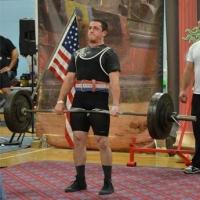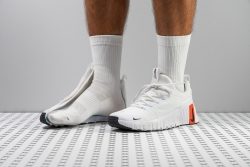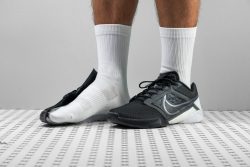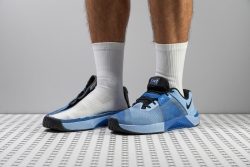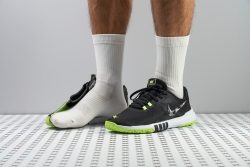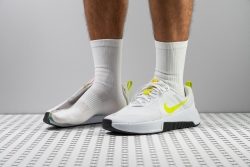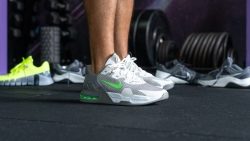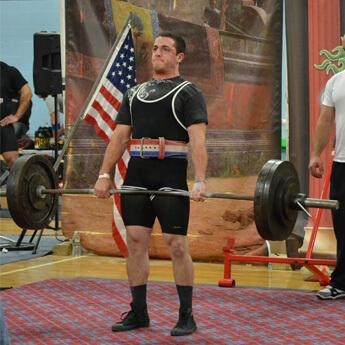5 Best Nike Hiit Shoes in 2025
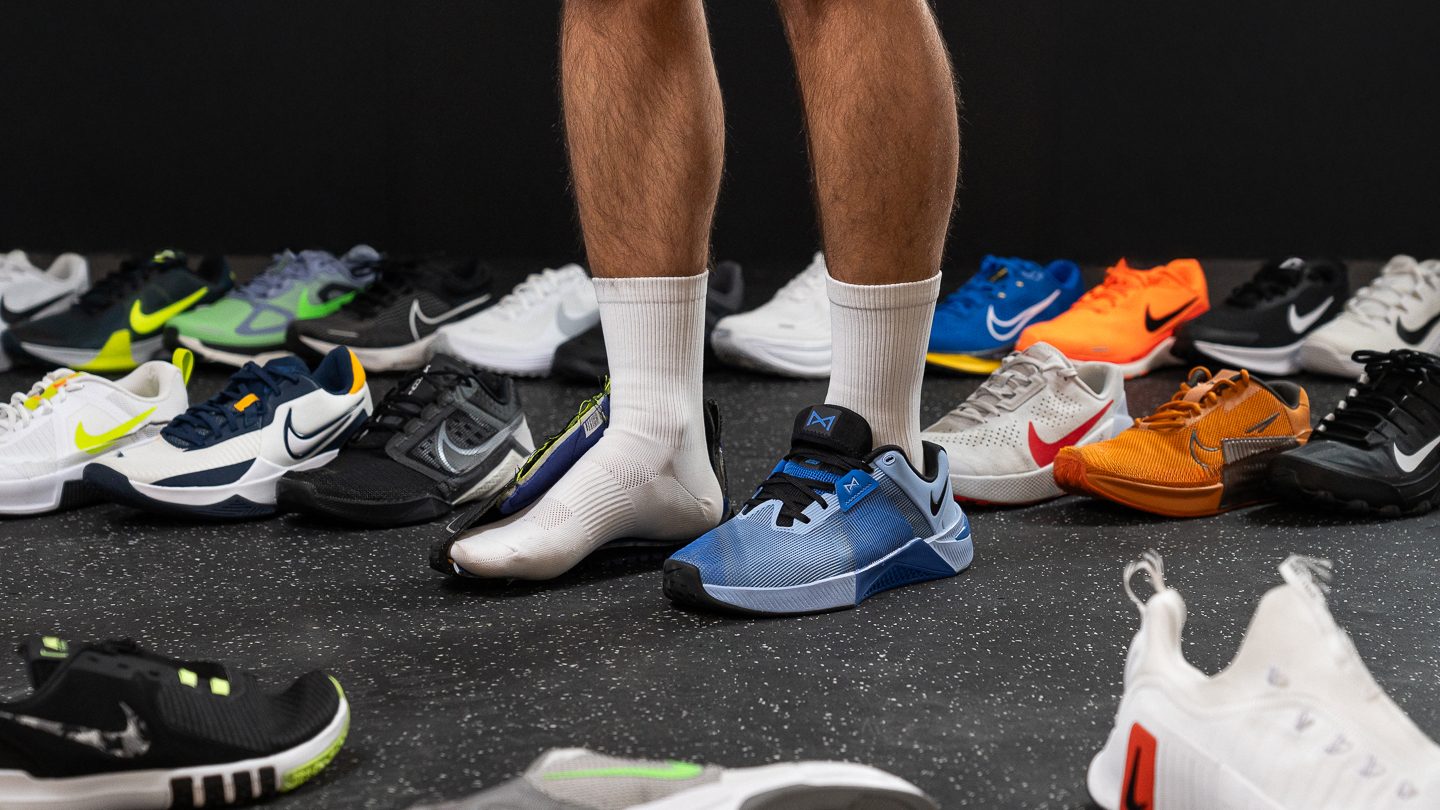
We buy shoes ourselves. We earn commissions when you buy through us, at no extra cost. Why trust us
If you need shoes that can handle the heat of punishing workouts, the Nike HIIT shoes will definitely fit the bill. The intense nature of this cardiovascular training regimen pushes your body to the limits. That’s why you need the right footwear that’s specifically built for this purpose.
The great benefits of high-intensity interval training are undeniable. However, it also requires shoes that can handle the complexity of these high-impact workouts. From Nike Free Metcon models to the ZoomX SuperRep series, you have solid choices to select from that deliver performance, ankle support, and extra comfort.
With so many great options available, picking the ideal shoes that suit you best can be confusing. To help you with that, we personally bought and tested Nike HIIT shoes. We scrutinized every little detail we could find about the shoes, whether during HIIT exercises or while testing them in the lab. Check out our top picks.
How we test Nike hiit shoes
To make our recommendations, we put in hours of work to test the shoes in the lab and in the gym. We also take the time to double-check the quality of materials and technologies integrated into the shoes. Here’s exactly how we approach our selection process:
- We purchase HIIT shoes from Nike using our own money. This ensures our 100% objectivity.
- We work out with each model thoroughly when testing it during HIIT-style training sessions, which usually include sprinting, jumping rope, box jumps, burpees, and weight lifting. We take note of the shoes’ cushioning, support, traction, and durability.
- After all the performance tests, we proceed with mechanical tests in our lab. We cut the shoes in half and subject them to dozens of tests, which result in more than 20 data points that make all the HIIT and gym shoes comparable.
Best Nike HIIT shoes overall
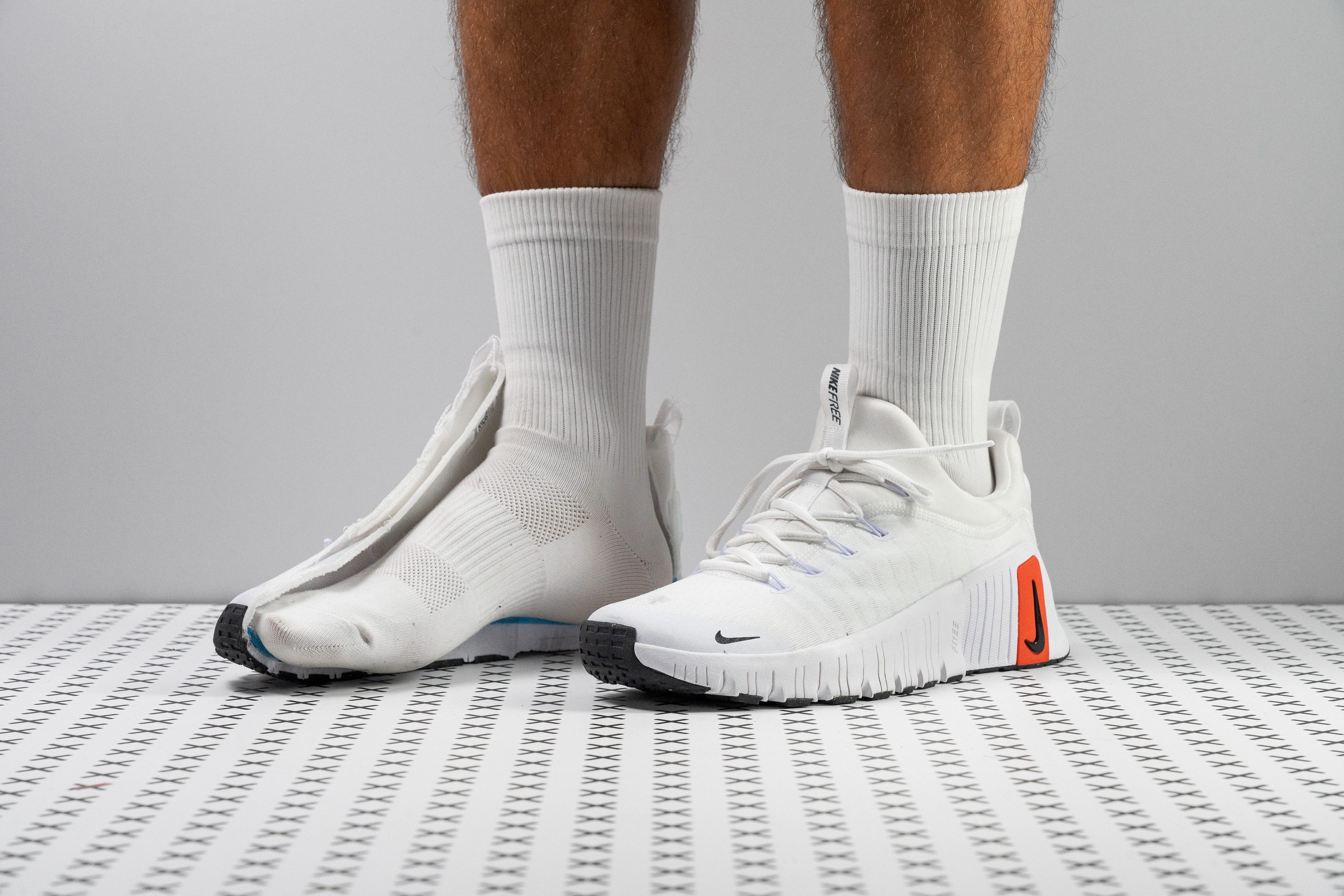





















































What makes it the best?
After numerous workouts in Nike trainers and countless hours in the lab, the Nike Free Metcon 6 proves it has versatility at its core, dominating the HIIT shoe category. From its airiness to its exceptional adaptability, and its solid support, it has the makings of an elite all-rounder.
Moving in the FM6 feels liberating! At just 9.7 oz (274g), it’s 10.5% lighter than average. Additionally, it includes a delicate upper that ensures seamless airflow for a rejuvenating experience, as validated by our lab with a perfect breathability score.
Beyond its weightlessness, it offers remarkable flexibility, enhancing our agility. Whether twisting, bending, or performing planks and jumps, the midsole follows freely. Our manual assessment rated it a low 2/5 torsional rigidity score, while our bend test proves it’s impressively 76.9% more bendable than average.
Honoring its name, Free Metcon 6 proves flexibility and stability can go together. We experienced solid footing in this trainer through its wide 113.9/94.4 mm base and its firm 27.8 HA foam insert in the heel, compared to the softer 22.5 HA cushioning throughout the midsole.
However, it falls short in terms of stack for repetitive jumps and high-impact workouts. Those requiring additional cushioning might want to check alternatives.
Pros
- Fantastic breathability
- Very light on foot (lighter than average too)
- Abundant cushioning for HIIT
- Most flexible cross-trainer ever
- Excellent stability for moderate weightlifting
- Sock-like fit in a bootie upper
- Accommodating toebox (for medium feet)
- Great grip on gym surfaces
Cons
- NOT for rope climbs (lacks protection)
- Can be hard to put on (narrow opening)
Nike HIIT shoes with the best energy return
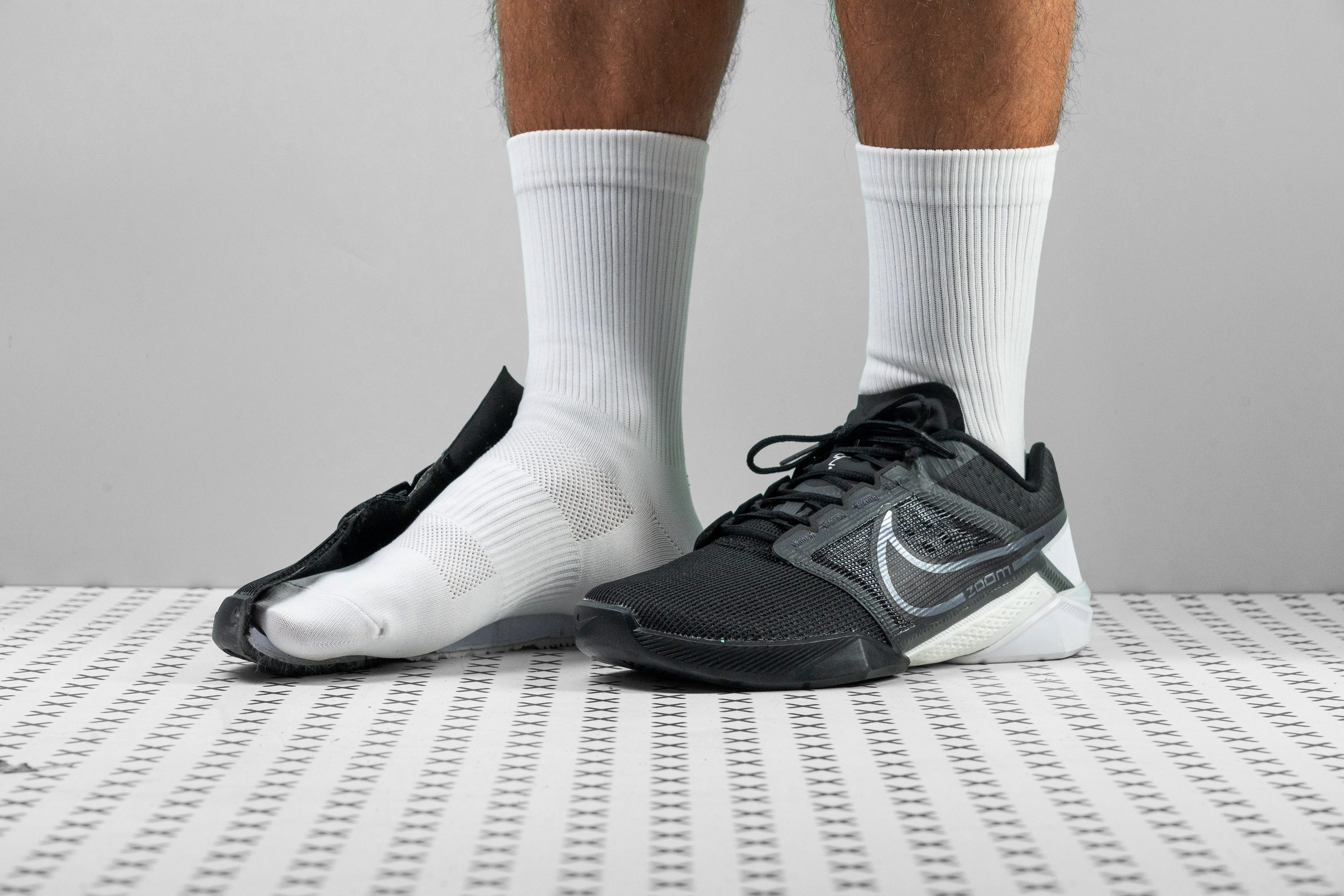




































What makes it the best?
The Nike Zoom Metcon Turbo 2 has a rebound-ready and turbo-charged midsole that allows us to be quick and agile with our footwork. Among HIIT shoes from Nike, we validated in the lab that this pair offers the best energy return. To enhance control, its grippy base prevents any slips, while its flexible midsole is kind to our feet and allows free movement.
We immediately sliced the midsole in the lab to discover its magic, and we found the Zoom Air unit in the forefoot. This is also the reason why we recorded a solid energy return score of 64.7%, which felt undeniable when performing short bursts of running and jumping jacks.
We could stop and pivot easily on shiny wooden floors with the outsole’s multi-textured pattern and gripping power. Using our traction test in the lab, we recorded a good friction score of 0.34, reassuring us we don’t need to second-guess our movements.
When performing burpees and lunges, this trainer accommodated all our foot-bending movements freely. True enough, it emerged 18.9% more flexible than average in our 30-degree bend test.
However, its minimal cushioning lacks shock absorption for longer runs and jump rope sessions. Those seeking more joint protection should try alternatives.
Pros
- Bouncy Zoom Air in the forefoot
- Good for short runs
- Perfect for agility drills
- Stable for moderate lifting
- Excellent flexibility
- Amazingly breathable
- Durable outsole
- Reliable outsole traction
Cons
- Upper is not durable rope climbing
- Heavy for a "speed-oriented" trainer
Best Nike HIIT shoes for weightlifting
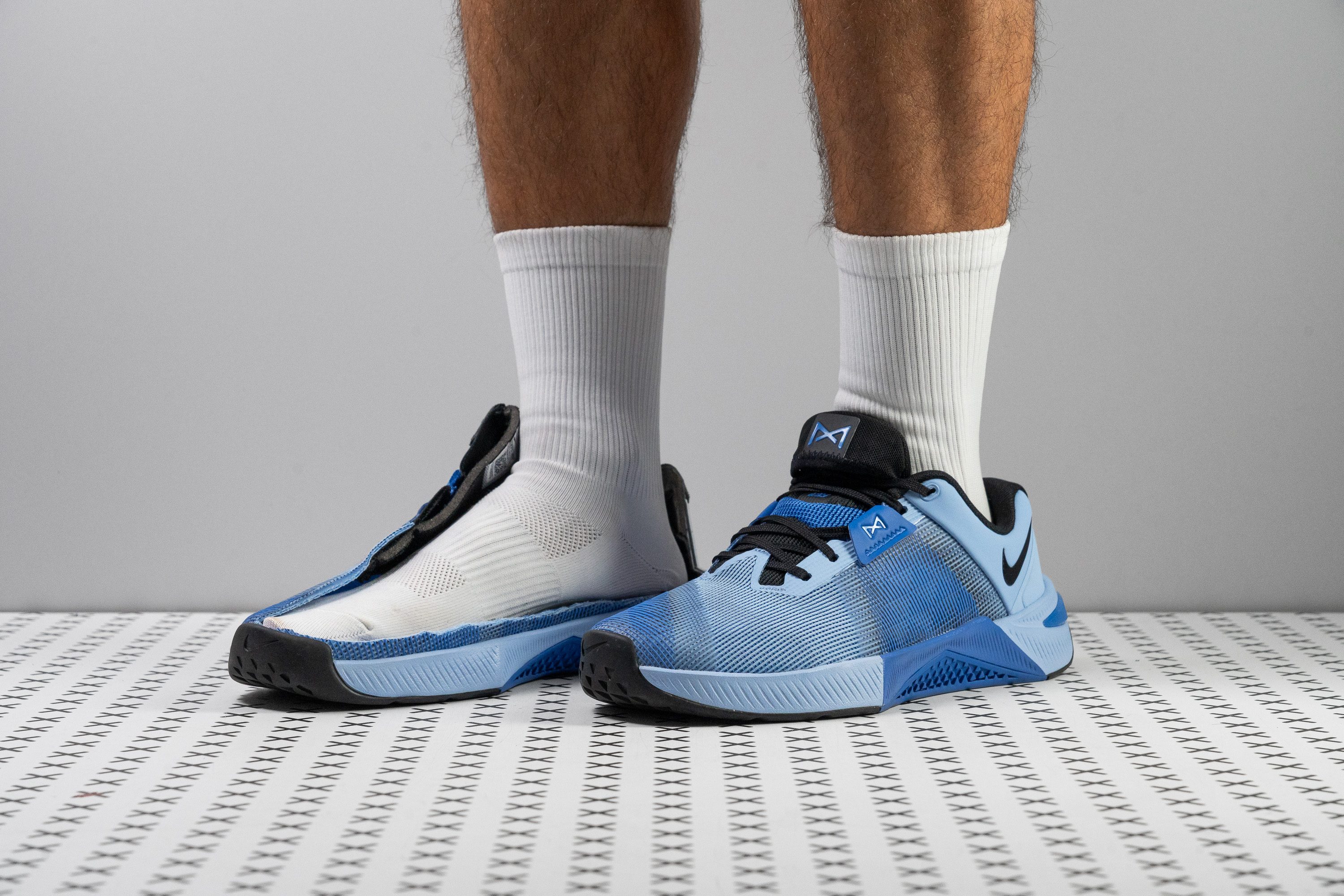














































What makes it the best?
We tested Nike’s HIIT shoes against punishing high-intensity workouts to find the best weightlifting trainer — Nike Metcon 10 undoubtedly claims this throne. While it's versatile enough for other workouts, it shines in weightlifting the most. Our lab results show it provides the most solid foundation for all types of lifting with its wide and steady base, firm foothold, and unwavering outsole.
We performed all types of lifts — heavy squats, deadlifts, power snatches, and clean and jerks — feeling confident throughout. Metcon 10 has a vast platform, enhancing control and improving our balance. Our caliper confirms above-average measurements of 115.2 mm in the forefoot and 90.8 mm in the heel.
Metcon 10 has a sturdy upper and an internal midfoot band that firmly keeps our feet in place and avoids ankle rolls. Inside the heel lies a non-compressible Hyperlift plastic for extra stabilization when lifting heavier loads.
Below Metcon 10 stands a reliable, grippy outsole that ensures steady landings and jerks so we can lift with the proper form. We have the confidence to push our limits since the outsole protects us from unwanted slips. In our wet-condition test, it proved to be 11.8% grippier than the average trainer.
With its heavy-duty structure, we recommend Metcon 10 to those who regularly lift at least 220 lbs (100 kg). Otherwise, cheaper alternatives are available that will already provide the stability needed for lower weights.
Pros
- More versatile Metcon overall
- One of the lightest Metcons ever!
- ReactX adds shock absorption and energy return
- Increased forefoot flexibility
- Still amazingly stable for weightlifting
- Fantastic upper durability (even for rope climbs)
- Great grip on gym floors
- Highly secure foot lockdown
- Accommodating fit and toebox
- Handy Lace Tuck
Cons
- Outsole could be more durable
- Upper lacks breathability
Best minimalist Nike HIIT shoes
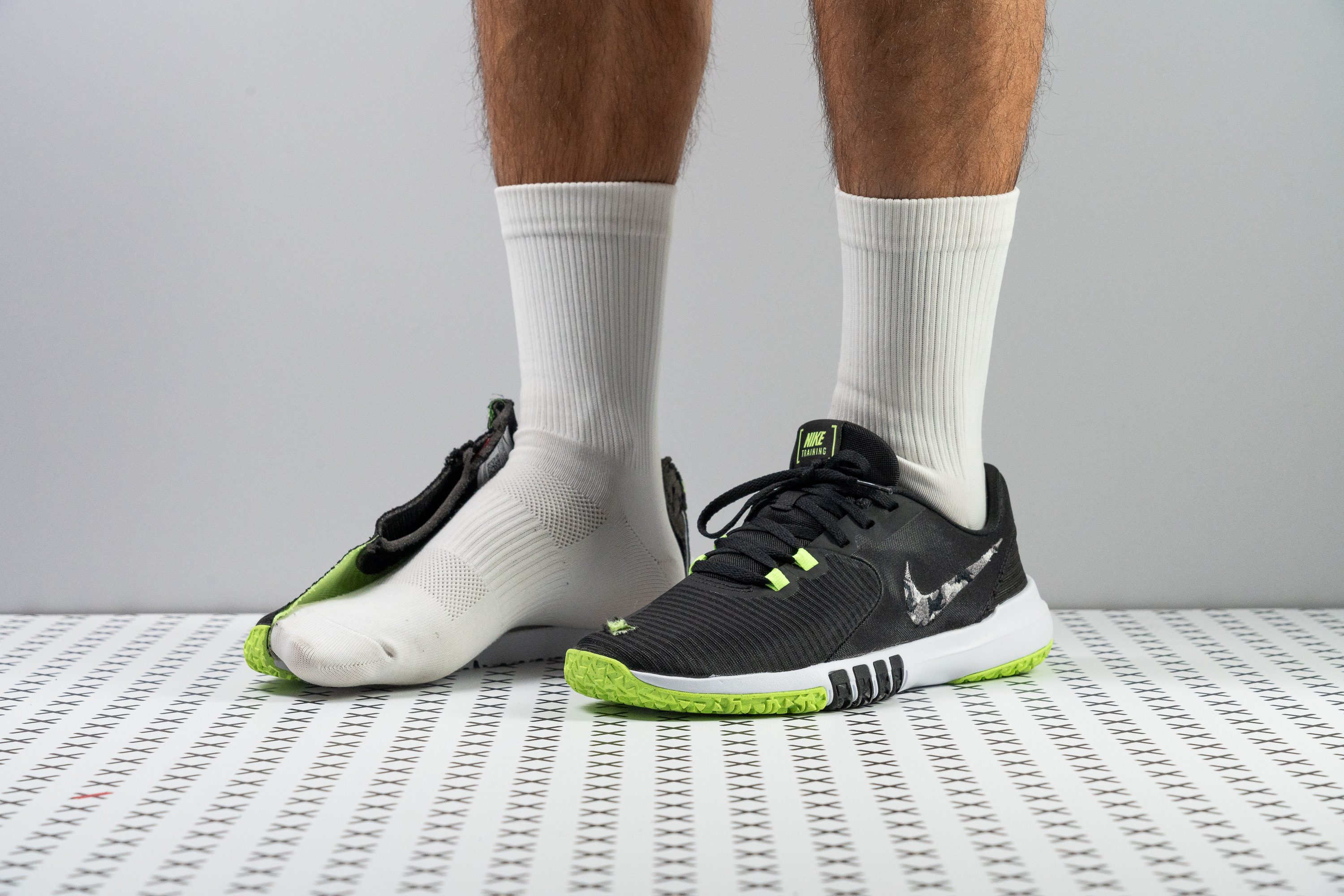

























What makes it the best?
Out of all the HIIT shoes from Nike, it’s the Flex Control 4 that feels the most minimal. From its weight down to its cushioning, the barely there feel is unmistakable. We also appreciated that the whole structure is flexible enough to allow the natural flexions of our feet.
When we were working out in it, we never felt the Flex Control 4 weighing us down. When we put it on the weighing scale, we were in awe that it weighed only 9.77 ounces or 277 grams, which is far lower than the 11.18 ounces or 317 grams average.
The cushioning also feels pretty minimal as it is thin and sits pretty close to the ground. Using our caliper, we learned that the whole cushioning system is thinner than average by 5.6 mm at the heel and 2.7 mm at the forefoot.
Structurally, the Flex Control 4 is true to its name. Based on our flexibility test, this Nike trainer needed only 10.1N of force to bend at a 30-degree angle. This figure is lower than the 11.1N that the typical trainer would need.
Stability-wise, this Nike shoe gave us something to worry about. Its base earned only a rating of 2 out of 5 for torsional rigidity, which means that the probability of us twisting our feet is high. We will never use this shoe for heavier weightlifting.
Pros
- Comfortable in-shoe feel
- Feels nimble and agile
- Lighter than average
- Very flexible
- Foot feels planted
- Budget-friendly
- Good grip
- Simple aesthetics
- True to size
Cons
- Durability issues
- Not for serious workouts
Best budget Nike HIIT shoes
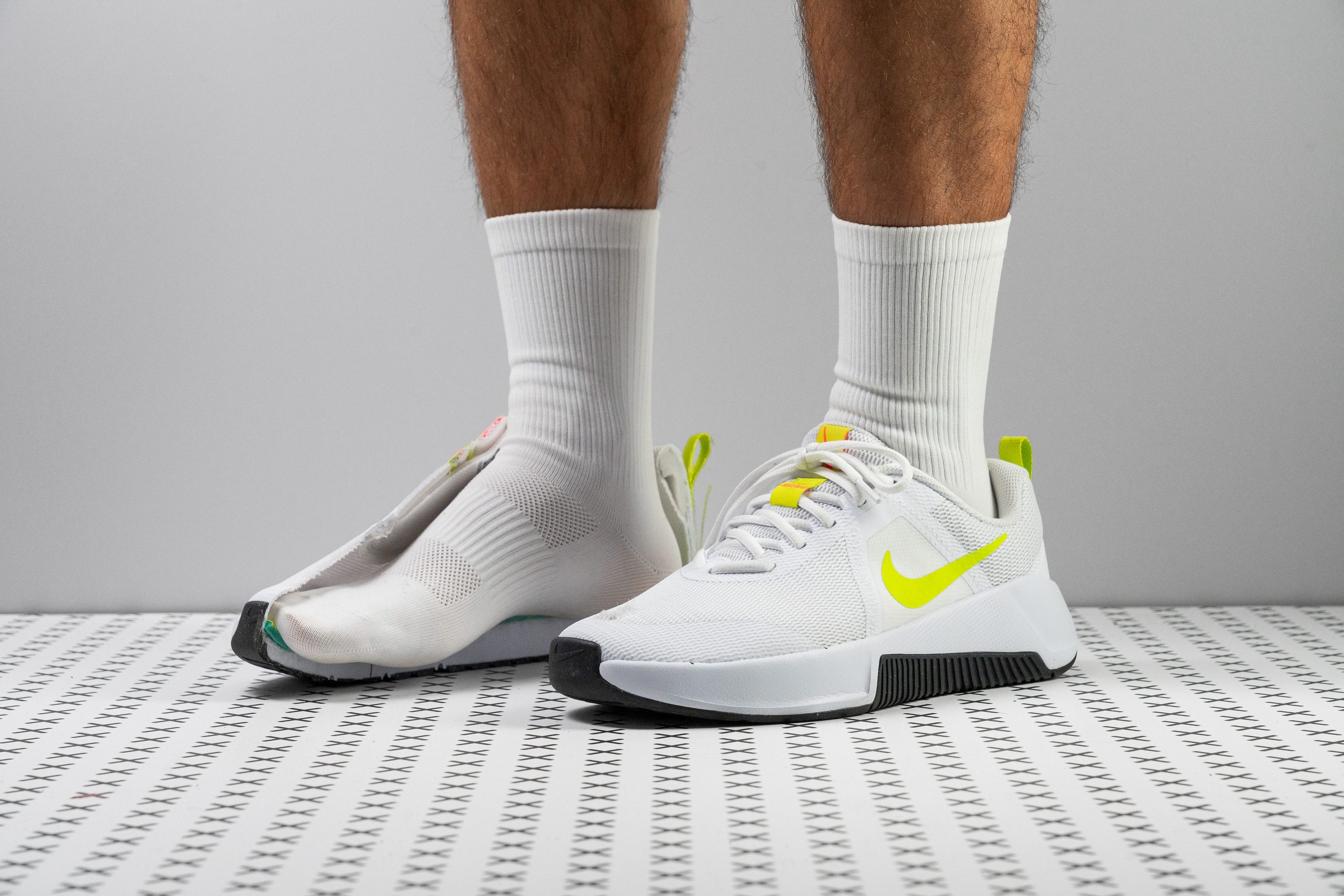

















































What makes it the best?
Quick toe-offs and gentle landings are what the MC Trainer 3 delivered in our workouts. Plus, it’s only $80 compared to the $106 average Nike trainer, making it our best budget pick in the Nike HIIT category. Our lab numbers confirm its affordable price didn’t cut back on comfort and performance.
The cushioning feels so delightful on foot, making us want to log in more miles or reps. The MC Trainer 3 has a solid combination of height and softness, evidenced by its taller-than-average 30.6/21.8 mm stack and softer-than-average 24.1 HA foam. Overall, our landings never felt harsh.
The well-ventilated upper made the experience even more pleasant, keeping our feet away from heat and sweat. When we pumped smoke in the shoe, it escaped very quickly, like how our body heat would during workouts. We awarded it a well-deserved 5/5 breathability rating.
The shoe has a light and straightforward build that makes completing each workout feel effortless. The deep flex grooves in the outsole allow us to bend our feet easily. While the shoe’s 10.4 oz (296g) weight never burdened us in the gym.
However, we cannot recommend this shoe to those with broad feet because the midfoot is weirdly narrow despite having a wide forefoot and heel. Those who need more space should check elsewhere.
Pros
- Fantastic value for money
- Highly breathable
- Doesn't drag the foot down
- Better cushioned than v2
- Heel bevel is better for running and walking
- Decent stability for moderate workouts
- Good flexibility for lunges and planks
- Accommodating toebox
- Comfortable padded interiors
Cons
- Not for flat and wide feet (narrow midfoot)
- Upper lacks wear resistance
- Weak outsole grip
What to look for in a Nike HIIT shoe
To make sure you get the most out of your HIIT sessions, it is important to consider the following parameters in an HIIT trainer:
- cushioning
- support
- breathability
- flexibility
- durability
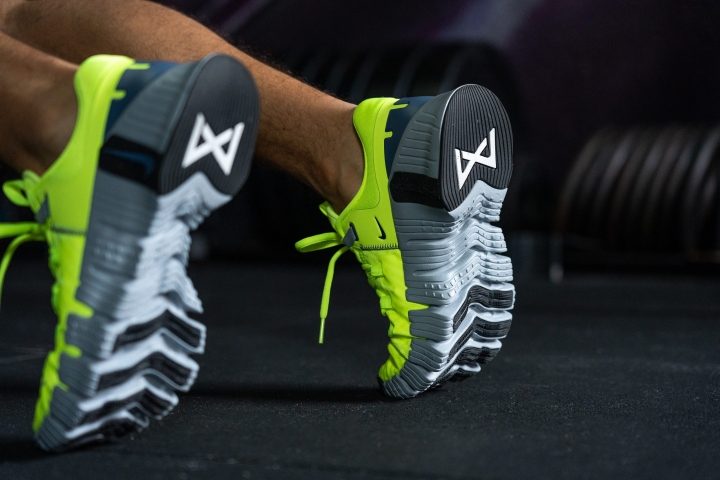
Cushioning
A good HIIT shoe must provide adequate cushioning to absorb impact and protect your feet during high-intensity workouts. Nike offers a range of cushioning technologies, such as Zoom Air and React foam, to provide cushioning and support.
On the flip side, you can opt for a less cushioned but more stable and grounded option like the Nike Metcon series.
Support
HIIT workouts are very demanding, so it is important to look for a shoe with adequate support to prevent injury and provide stability. Nike's HIIT shoes often come with reinforced midfoot support in the form of synthetic overlays or sturdy sidewalls, which make sure that the foot stays in place during the most dynamic movements.
The shoe's lateral stability is reflected in its high torsional rigidity, stiffer heel counter, and wider platform.
Breathability
Breathable materials are important for HIIT shoes, as they will help keep your feet cool and dry during intense workouts. Nike uses a combination of mesh and synthetic materials to create shoes that are both durable and breathable.
Some Nike HIIT shoes tend to be better aerated than others. We use a smoke-pumping machine to assess each shoe's breathability.
Flexibility
A good HIIT shoe should have enough flexibility to allow for natural movement during your workout. Nike uses a variety of construction techniques, such as dynamic forefoot grooves, to create shoes that are flexible and provide a natural feel.
The most flexible HIIT trainer from the brand is the Nike Free Metcon.
Stiffer Nike shoes, on the other hand, create a more stable and surefooted platform for strength training.
Durability
HIIT workouts can be demanding, so it is important to look for a shoe that is durable enough to withstand the demands of high-intensity training. Nike uses high-quality materials and construction techniques to ensure their shoes are durable and can withstand the demands of intense workouts.
A Dremel durability test helps us find out how wear-resistant each Nike HIIT shoe is both in the upper and in the outsole.
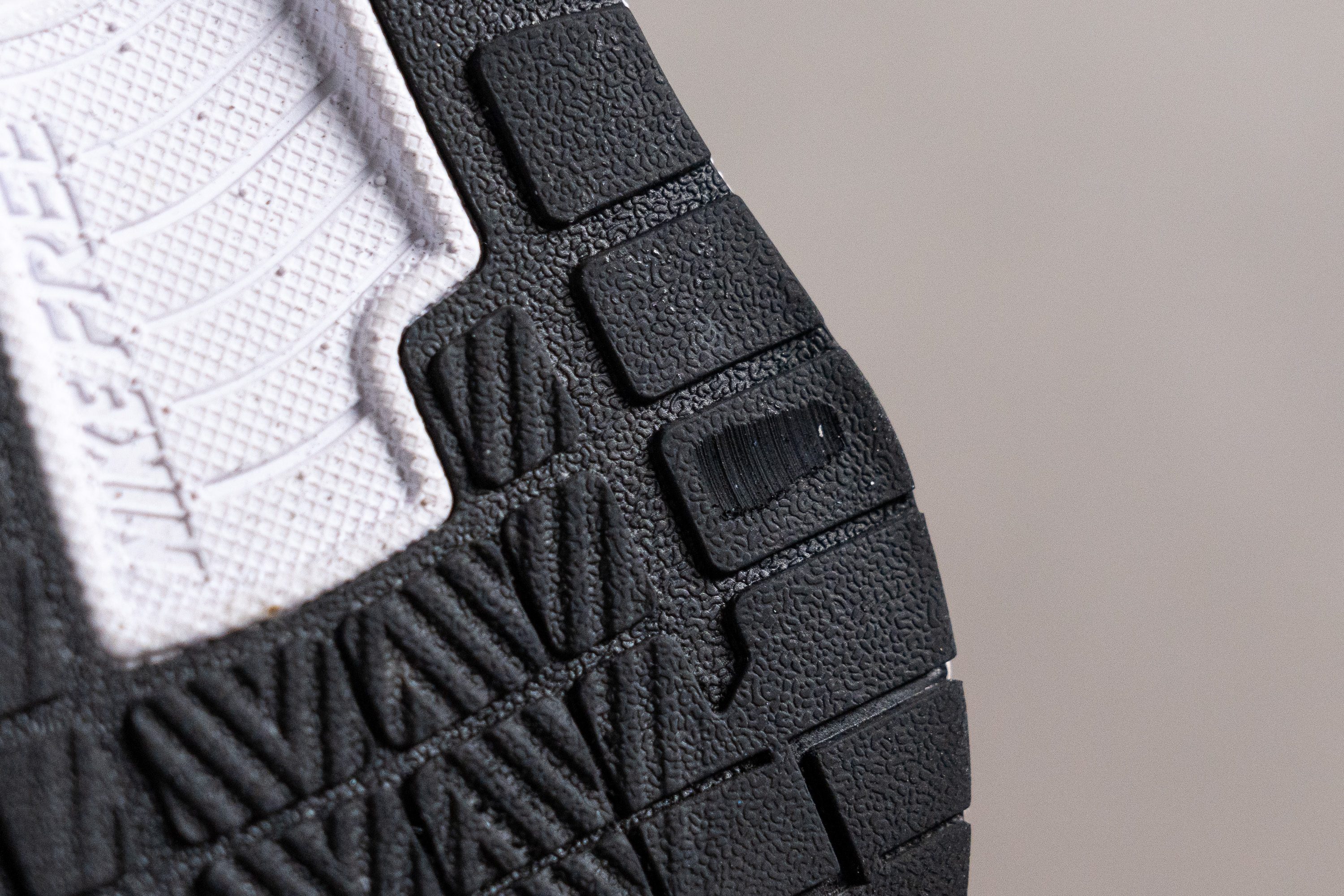
In the outsole durability test, we use a tread gauge to measure the depth of the dent created by the Dremel. The smaller the measurement, the better the abrasion resistance.
